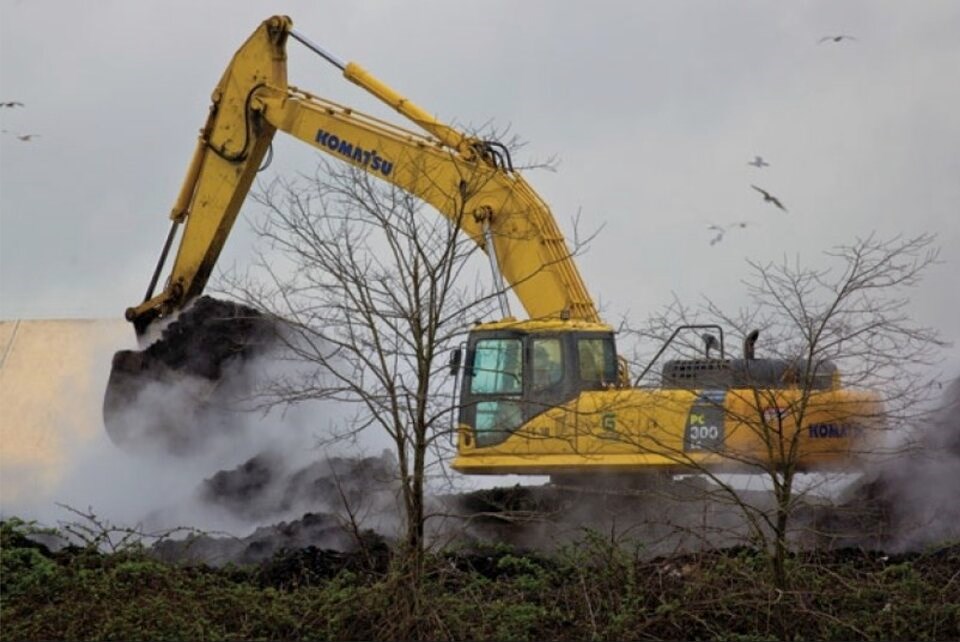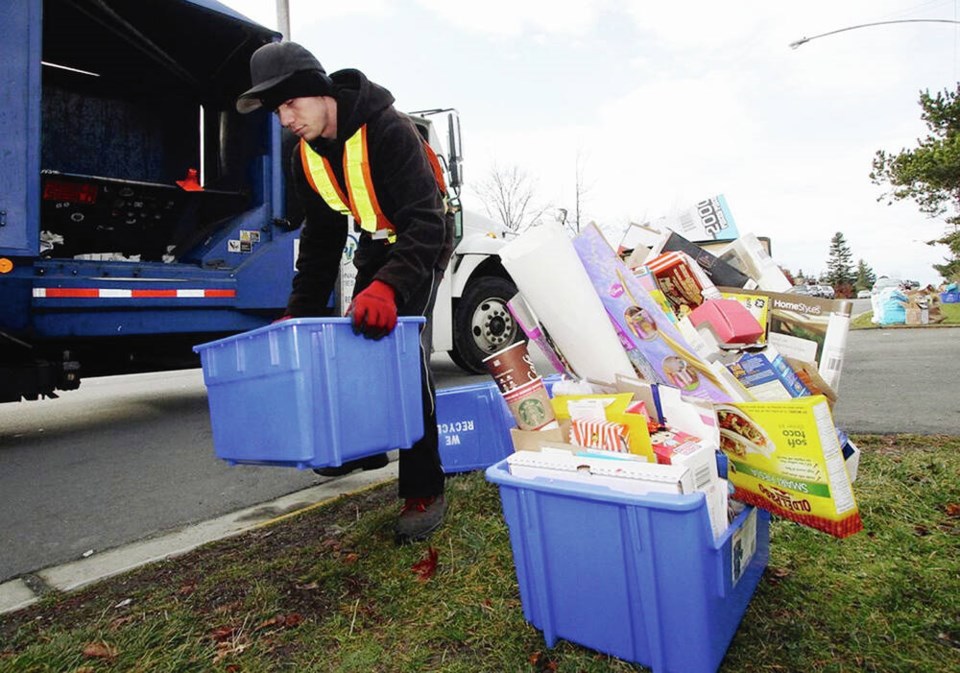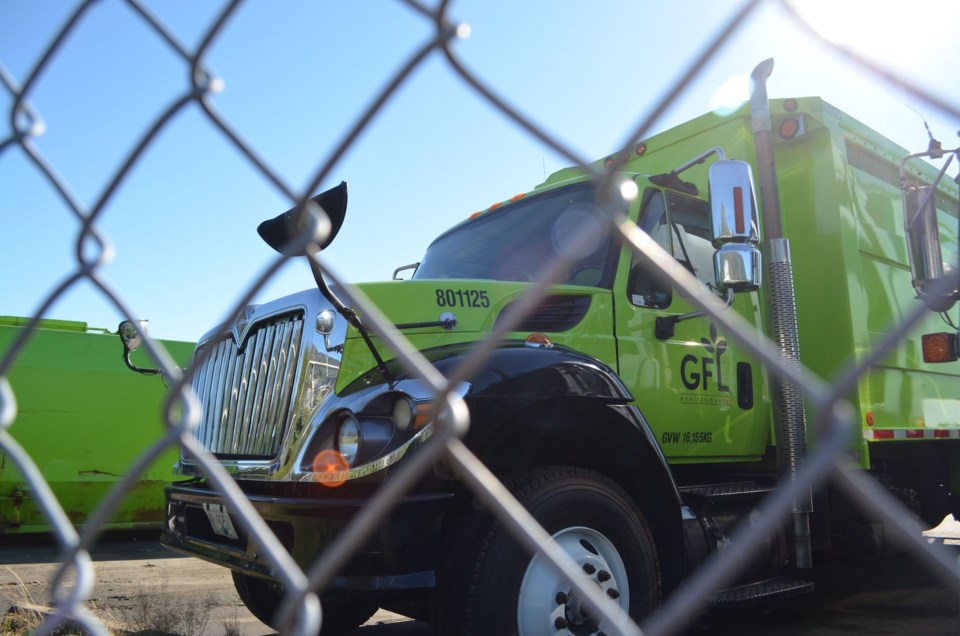A composting company that serves four million households across Canada and the U.S. has been penalized more than $22,000 for leaking liquid waste into the environment in Squamish, B.C.
The environmental contravention occurred at GFL Environmental Inc.’s Brackendale facility, according to a decision released Wednesday from B.C.’s Ministry of Environment and Parks.
Located near the 麻豆社国产Landfill, the facility takes in, stores and processes municipal compost from the Resort Municipality of Whistler. That process produces concentrated liquid waste, known as leachate, that's stored in ponds.
But in the more than 13 months leading up to Feb. 14, 2024, GFL was found to be in continuous violation of provincial environmental regulations as leachate leaked into the nearby environment.
The decision from director of the Environmental Management Act Kelly Mills cites samples taken at an unlined settlement pond in 2023 showing copper levels in excess of contaminated sites regulation for drinking water.
“Acute exposure to copper can cause mortality in fish, amphibians and invertebrates while chronic exposure can affect growth, reproduction and survival,” wrote Mills.
The director also pointed to water samples taken during a 2018 environmental impact assessment that showed organic runoff from the site could negatively impact aquatic wildlife, especially salmonids within the Cheekye River.

Tests don't support actual environmental harm, claims company
In submissions, the company pushed back against the penalty, arguing the leaked waste only posed a “limited and localized” impact on the environment. GFL said the nearest receiving water body, the Cheekye River, was 250 metres away, and that the penalty should be re-classified from a “major” to a “moderate” contravention.
The company also disputed the ministry’s reliance on tests that showed heavy metal levels in excess of Canadian drinking water standards.
No domestic wells were within 500 metres of the leaked waste, and in July 2024, drinking water tests carried out by GFL showed water quality meeting national standards, according to the company.
“These results do not support a finding of any ‘actual significant impact or very serious threat to the environment,’” said the company in submissions.
The company said the penalty was “too high” and should be reduced by $10,000.
Company failed to show there are no aquifers below site
Mills agreed there was no evidence of actual damage to the environment, and reduced the penalty to a “medium” contravention.
But the director disagreed that the company’s actions did not pose a threat to the environment. Mills noted regulations for contaminated sites define future drinking water use to “all drinking water aquifers below a site” whether or not they are currently in use.
GFL failed to demonstrate there were no aquifers below the site, according to the decision. Mills also disagreed with the company that the landfill should be exempt from drinking water regulations for contaminated sites.
The director increased the $20,000 base penalty by $6,000 due to the ongoing nature of the violations — but then lowered it $4,000 after the company said it took a number of corrective actions.
Those included removing sludge from a storage pond in the summer, trialling new kinds of water treatment, and covering waste piles with a tarp and a 29-metre-long temporary structure.
GFL said it has taken “considerable measures to improve the quality of stormwater at the site” but that “some metal exceedances” are still prevalent. As a result, the company said it would apply for a water discharge permit by Jan. 17, 2025.
GFL has 30 days to either appeal the decision or pay the $22,200 penalty.

鈥婬eadquartered in Vaughan, Ont., GFL is the fourth-largest environmental services company in North America, employing more than 20,000 people. The organization provides solid and liquid waste management, and soil remediation services throughout Canada and in more than half of American states.
Earlier this month, GFL entered into a equity purchase agreement with several investment firms, limited corporations, limited partnerships and their subsidiaries — based in Delaware, Alberta, the United Kingdom and the Cayman Islands — to sell its environmental services business for $8 billion.
Documents filed with the U.S. Securities and Exchange Commission show GFL will retain a 44 per cent equity interest in the business. The company plans to use the proceeds to pay off debt and improve its cash flow, said the company in a recent statement.
According to a recent from the Canadian Centre for Policy Alternatives, GFL’s Patrick Dovigi was the highest-paid CEO in Canada in 2023. His total compensation package of $68.5 million was more than five times the average compensation of Canada's 100 highest-paid CEOs, the report found.




